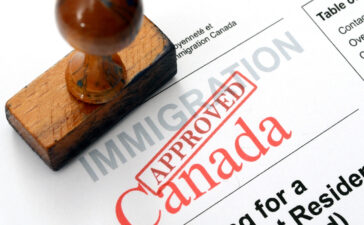The immigration services of most companies around the world now require foreign visitors to apply for a visa to enter the country. Of course, there are exceptions: many countries have special agreements with certain other countries that allow their citizens to travel inland without a visa. However, these provisions are generally only valid for short stays: longer visits require a visa. Japan is no exception.
If you are looking for a visa to Japan, you should find out about the 6 types of Japanese visas. Depending on the reason for your trip to Japan, you will need one of these types of visas to enter, visit/stay and perform certain activities legally.
The 6 types of visa are:
- Visa for temporary visitors,
- Work visa,
- General visa,
- Specified visa,
- Diplomatic visa
- Official visa.
The first type is the visa-free stay. This is technically called a visa for temporary visitors, as the name suggests. However, don’t be fooled by the name: visa-free travel has a number of limitations. To be eligible for a visa-free stay in Japan, you must be ready to leave the country within 90 days of entry. You must also have a passport with you which is valid throughout your stay, and you must be in possession of a return ticket from the country. This visa is valid for 90, 30 or 15 days.
If you plan to work in Japan – which means that you earn money in any way – you must apply for a work visa before entering the country. According to the Japanese immigration office, the work visa is valid for 1 or 3 years. You must apply for your Japanese work visa before entering Japan. This means that you cannot enter Japan without a visa and then convert it to a work visa without first leaving the country.
The official categories of the work visa for Japan are professor, artist, religious activities, journalist, investor/manager, legal/accounting services, medical services, researcher, instructor, engineer, humanities specialist, person transferred within a company, performing artist and skilled workforce.
You can stay more than 90 days during your trip to Japan, but you do not intend to earn money during your stay. Instead, you can consider studying in Japan or participating in certain cultural activities. Or maybe you are staying more than 90 days with friends, relatives or in a homestay. If this describes your situation, you should apply for a general visa for your visit to Japan. It’s good for 1 year or 6 months (cultural activities), 2 years or 1 year (university student), 1 year or 6 months (pre-college), 1 year or 6 months (intern) or 3/2/1 year or 6/3 months (depending).
However, you can be married to a Japanese citizen, you are the spouse of a permanent resident in Japan or you are a long-term resident. In this case, you must apply for a specific visa to legally stay in Japan. This is valid for 3 years, 1 year or 6 months.
Finally, if you are a diplomat or diplomatic courier in Japan, you need a diplomatic visa upon entering Japan. According to the Japan Immigration Bureau, the diplomatic visa is only valid for the duration of the mission. The visa is valid for the duration of the mission. Likewise, if you work in a way that supports diplomatic efforts in general, for example as a technical or administrative assistant who supports a diplomat, you must apply for a so-called official visa. Like the diplomatic visa, this visa is only valid for the duration of the mission.
A warning: if your specific plans for your trip to Japan are not clear at the moment, you may be tempted to enter Japan with a visa-free stay while keeping your options open. This is fine, provided that you actually leave the country within the specified 90 days and are not trying to make money in Japan. However, if you plan to stay more than 90 days or plan to work, do it wisely and apply for the right type of visa now. This can save you many problems later.




